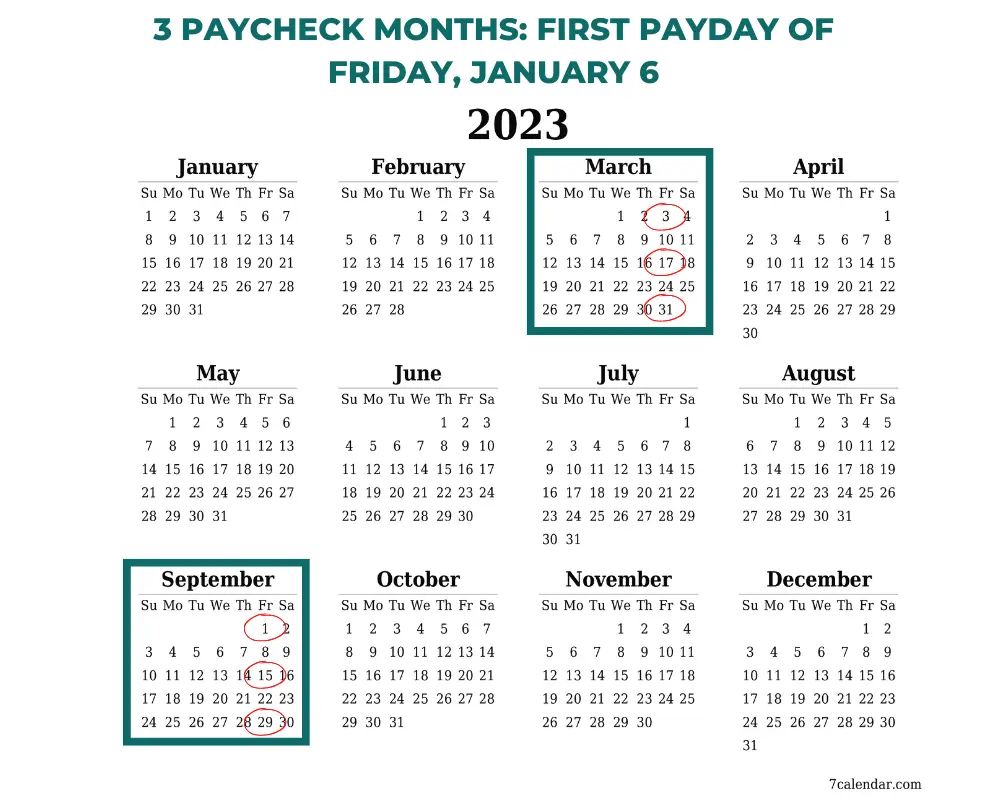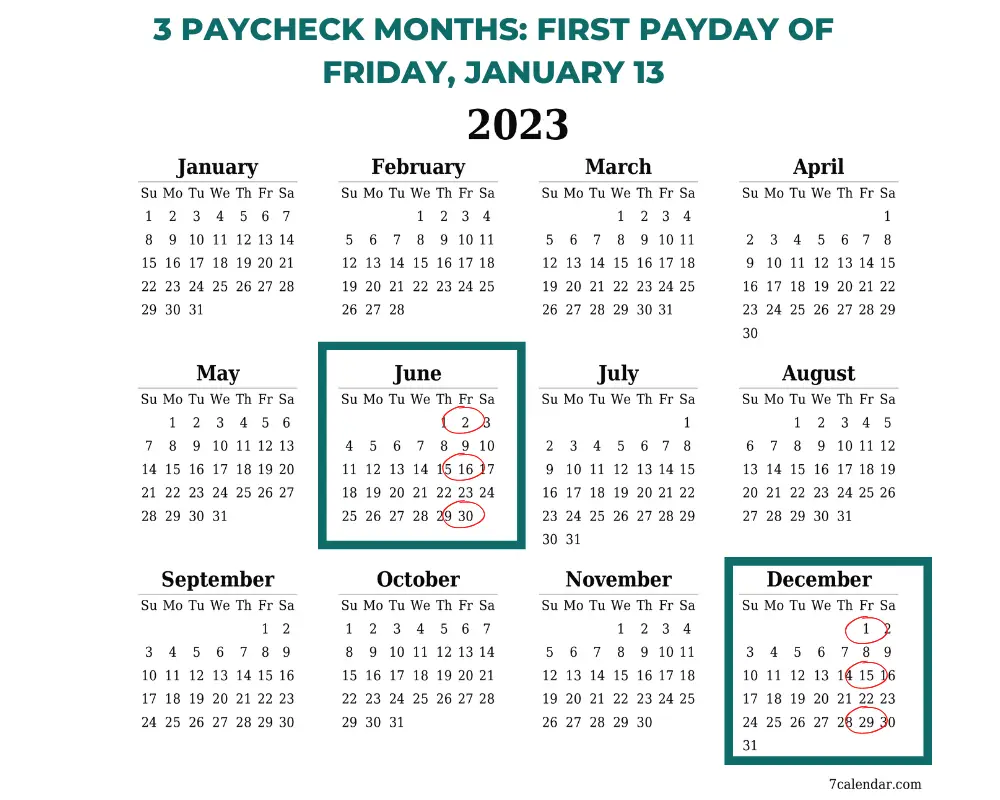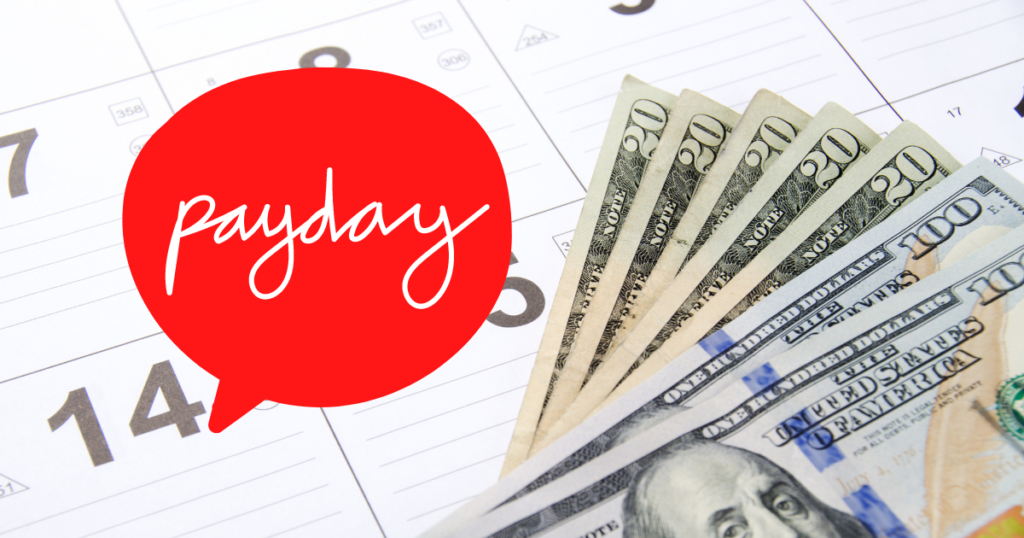If you get paid every other week, I bet you’re looking forward to your three paycheck months in 2023.
For most of my career as a salaried employee, I was paid biweekly and received 26 paychecks a year. That’s two more paychecks than everyone who gets paid twice a month.
Here’s the simple math:
- Biweekly: 52 weeks ÷ 2 = 26 paychecks
- Twice a month: 12 months × 2 = 24 paychecks
3 Paycheck Months in 2023 if You’re Paid Every Other Friday
Every year, I would pull out a calendar to figure out the three paycheck months based on my employer’s pay schedule.
Although I’m no longer paid biweekly, I’ve continued this tradition for the past few years to help my readers plan for their “extra” paychecks.
Here are the three paycheck months that I’ve identified for 2023:
- If your first paycheck of 2023 is Friday, January 6, your three paycheck months are March and September.
- If your first paycheck of 2023 is Friday, January 13, your three paycheck months are June and December.


List of Every Friday Biweekly Payday in 2023
First Paycheck of 2023: Friday, January 6
- January 6
- January 20
- February 3
- February 17
- March 3
- March 17
- March 31
- April 14
- April 28
- May 12
- May 26
- June 9
- June 23
- July 7
- July 21
- August 4
- August 18
- September 1
- September 15
- September 29
- October 13
- October 27
- November 10
- November 24
- December 8
- December 22
First Paycheck of 2023: Friday, January 13
- January 13
- January 27
- February 10
- February 24
- March 10
- March 24
- April 7
- April 21
- May 5
- May 19
- June 2
- June 16
- June 30
- July 14
- July 28
- August 11
- August 25
- September 8
- September 22
- October 6
- October 20
- November 3
- November 17
- December 1
- December 15
- December 29
Please note: The example shown above is only for employees who are paid every other Friday.
If you’re paid biweekly but not on Fridays, identify your three paycheck months for 2023 by pulling out a calendar, marking your paydays and finding the months with three of them.
And if a holiday falls on your payday, your employer will probably pay you the day before.
Make a Plan for Your Third Paychecks
If you determine your three paycheck months well in advance, go ahead and make a plan for how you’ll spend the money.
To simplify the budgeting process, I recommended that people who are paid biweekly build their monthly budget based on receiving two paychecks a month and not a dollar more.
Then, during the months when you receive three paychecks instead of two, treat the money as a bonus!
Need some ideas for how you’ll save, invest or spend your third paychecks? Here are a few ways that I’ve taken advantage of three paycheck months in the past:
- Pay down mortgage principal
- Pay a semi-annual bill like auto insurance
- Fund a home improvement project
- Build up the emergency fund
- Invest in a Roth IRA
- Save money for Christmas or birthday presents
- Book a weekend getaway
- Donate to charity
Do you have a plan for your three paycheck months in 2023? Let me know in the comments below and see this step-by-step guide to learn about my personal budgeting strategy.


Why? 3 pays of every second Thursday does not show up here. ?